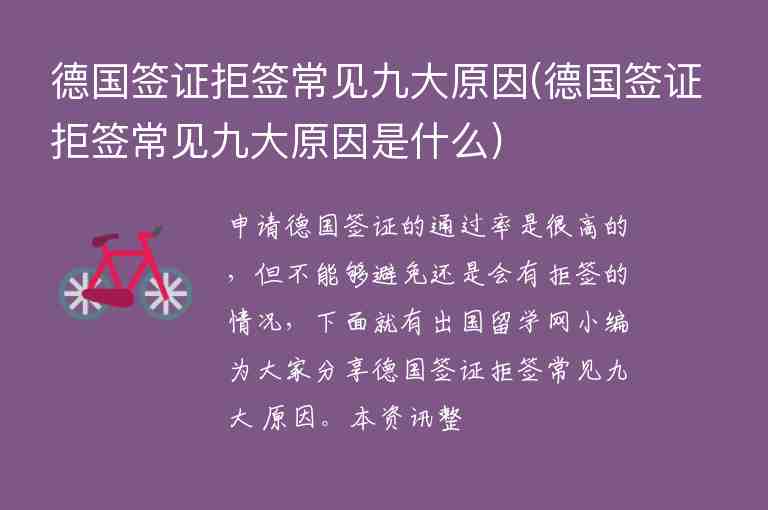想必在海外留学生活中,大家都会遇到拥挤的场景。无论是在人群中,还是在交通上,甚至是在公共场所,拥挤总是让人感到不便和压力。那么如何用英语表达这种情况呢?今天我们就来一起探讨一下常用的英语表达拥挤的情况,以及如何描述人群拥挤的场景、交通拥堵的情况和公共场所拥挤的场景。让我们一起来看看这些表达能给我们带来怎样的启发吧!
常用的英语表达拥挤的情况
1. Crowded
- This is the most common and straightforward way to express a crowded situation in English. It simply means that there are too many people in one place.
- Example: The train was so crowded that I could barely move.
2. Packed
- This word can be used to describe a situation where there are too many people in a confined space, such as a room or a vehicle.
- Example: The concert was so packed that I couldn't even see the stage.
3. Jammed
- This word is often used to describe a situation where there is not enough space for everyone and people are tightly squeezed together.
- Example: The subway was jammed during rush hour.
4. Congested
- This word is commonly used to describe a crowded situation, especially on roads or highways.
- Example: The streets were congested with cars during the peak hours.
5. Teeming
- This word means that a place is full of people or activity, often in an overwhelming or chaotic manner.
- Example: The market was teeming with shoppers during the holiday season.
6. Bustling
- Similar to "teeming", this word describes a place that is full of activity and energy due to the large number of people present.
- Example: New York City is always bustling with tourists and locals.
7. Swarming
- This word can be used to describe a situation where there are large numbers of people moving around quickly and closely together.
- Example: The airport was swarming with passengers trying to catch their flights.
8. Overcrowded
- When a place has more people than it can comfortably accommodate, it can be described as overcrowded.
- Example: The classroom was overcrowded with students, making it difficult for everyone to focus.
9. Sardine-like
- This phrase compares the crowdedness of a place to sardines packed tightly in a can.
- Example: The bus was so sardine-like that I had to stand the entire ride.
10. Shoulder-to-shoulder
- This phrase means that people are standing or moving very closely together, almost touching shoulders.
- Example: The fans were shoulder-to-shoulder at the concert, all trying to get closer to the stage.
11. Wall-to-wall
- Similar to "shoulder-to-shoulder", this phrase describes a situation where people are packed so tightly together that there is no space in between them.
- Example: The club was wall-to-wall with partygoers dancing and having a good time.
12. Jostling
- This word can be used to describe a situation where people are pushing and shoving each other in a crowded place.
- Example: There was a lot of jostling on the train during rush hour.
13. Cramped
- When there is not enough space for everyone, it can be described as cramped.
- Example: The hotel room was too cramped for our family of five.
14. Crammed
- This word has a similar meaning to "cramped" and can be used to describe a place that is uncomfortably full of people.
- Example: The lecture hall was crammed with students trying to find a seat.
15. Throngs
- This word refers to large crowds of people gathered together in one place.
- Example: There were throngs of protesters marching through the streets
如何描述人群拥挤的场景
1. "Sardine-packed": This phrase perfectly captures the feeling of being tightly squeezed in a crowded space, just like sardines in a can.
2. "Crushed in a sea of people": Use this expression to describe a situation where there are so many people that you feel like you're drowning in a sea of bodies.
3. "Jostling for space": When there's not enough room for everyone, people start pushing and shoving to find their own spot. This phrase captures the chaotic and competitive nature of crowded spaces.
4. "Shoulder-to-shoulder": This phrase describes a situation where people are standing so close together that their shoulders are touching, emphasizing the lack of personal space.
5. "Packed like sardines in a tin can": Similar to the first phrase, this one also compares the crowded space to sardines in a can, but adds the image of being squeezed into a small container.
6. "Elbowing through the crowd": When trying to navigate through a crowd, you often have to use your elbows to push past people. This phrase captures the physical aspect of being in a crowded space.
7. "A sea of bodies": Use this expression to paint a vivid picture of being surrounded by countless bodies in a packed area.
8. "Suffocatingly crowded": This phrase conveys the feeling of being trapped and unable to breathe due to the overwhelming number of people around you.
9. "Fighting for breathing room": In extremely crowded situations, it can feel like you're fighting for every inch of space just to be able to take a breath.
10. "Crammed together like sardines on a bus/train": If you're stuck on public transportation during rush hour, this phrase accurately describes the uncomfortable and cramped conditions.
These phrases not only convey the physical sensation of being in a crowded place but also add a touch of humor to the situation. Use them in your everyday conversations to accurately describe the chaos and discomfort of crowded spaces
用英语表达交通拥堵的情况
1. "Traffic congestion" - This is a common term used to describe a situation where there is a lot of traffic on the roads, making it difficult for vehicles to move freely.
2. "Gridlock" - This refers to a complete standstill of traffic, often caused by an overwhelming amount of vehicles on the road or accidents.
3. "Bumper-to-bumper traffic" - This phrase describes a situation where vehicles are moving very slowly and are almost touching each other.
4. "Crawling traffic" - Similar to bumper-to-bumper traffic, this term suggests that vehicles are barely moving at all.
5. "Heavy traffic" - This is a more general term used to describe a situation where there is a high volume of vehicles on the road, causing delays and slow movement.
6. "Congested roads/streets/highways" - These phrases indicate that there is too much traffic on a particular route, resulting in slow-moving or stopped vehicles.
7. "Standstill/traffic jam" - These terms describe a situation where vehicles are completely stopped and unable to move due to congestion or other factors.
8. "Rush hour traffic" - This refers to the peak hours of the day when most people are commuting, leading to heavy traffic and longer travel times.
9. "Stop-and-go traffic" - This phrase suggests that vehicles are constantly starting and stopping due to congestion or other factors.
10. "Navigating through heavy traffic" - This is another way of describing the difficulty of driving in congested areas.
It's important to note that these phrases can also be used in other contexts, such as describing crowded public transportation or busy pedestrian areas.
In conclusion, when trying to express the idea of heavy traffic or congestion in English, there are various phrases and terms that can be used depending on the specific situation. It's important to choose the most appropriate one and use it accurately to convey the desired meaning
描述公共场所拥挤的场景
1. "Sardine-packed" - 形容公共场所人满为患,像是罐头里的沙丁鱼一样挤在一起。
2. "Crowded like a can of sardines" - 用于形容人群密集到极致的场景,比喻沙丁鱼罐头里的挤迫感。
3. "Packed like sardines in a tin" - 类似于上一种表达,但更加生动形象地描绘了拥挤的情况。
4. "Cramped" - 形容空间狭小,人群密集,无法舒展身体。
5. "Crammed" - 同样意为拥挤,但带有更强烈的压迫感和不舒服的感觉。
6. "Shoulder-to-shoulder" - 形容人们站得非常近,肩膀紧靠着肩膀,无法移动。
7. "Elbow-to-elbow" - 与上一种类似,但更加强调身体接触紧密度。
8. "Pressed together like sardines in a can" - 同样用沙丁鱼罐头比喻,但更加生动地表达了人们被挤在一起的紧密程度。
9. "Jammed" - 形容空间被填满,没有任何空隙或余地。
10. "Packed to the brim" - 形容拥挤到极限,没有任何空间可用。
如何用英语表达拥挤带来的不便和压力
1. The Inconvenience of Crowding
Living in a crowded environment can be quite inconvenient and even stressful. As an international student, it is important to be able to express these feelings in English. Here are some phrases and expressions that you can use to talk about the inconvenience of crowding.
2. "Packed like sardines"
This phrase is often used to describe a situation where there are too many people in one place, making it feel very cramped and uncomfortable. For example, "The train was so full, we were packed like sardines."
3. "No breathing space"
When there is no room to move or even breathe comfortably due to overcrowding, you can use this expression. For instance, "The concert was so crowded, there was no breathing space."
4. "Suffocating"
Another way to describe the feeling of being in a crowded place is by saying it is suffocating. This means that the lack of space and air makes it difficult to breathe and can cause discomfort or anxiety. For example, "The subway during rush hour was suffocating."
5. "Cramped"
This word means that there is not enough space for everyone in a particular area or room. You can say something like, "The dorm rooms are so cramped with four people sharing one small space."
6. "Inconvenient"
Crowded places can also be very inconvenient as it becomes difficult to move around freely or complete tasks efficiently. You can say something like, "The grocery store was so crowded that it was very inconvenient to shop for groceries."
7. "Frustrating"
When overcrowding causes delays or makes things more challenging than they should be, you can use the word frustrating to express your feelings about the situation. For instance, "Trying to get on the bus during rush hour was frustrating because of all the people."
8. "Overwhelming"
Being surrounded by a large number of people can also be overwhelming, especially for introverted individuals. This means that you feel a sense of being overpowered or overburdened by the crowd. For example, "As an introvert, large parties can be overwhelming for me."
9. "Stressful"
Lastly, living in a crowded environment can also be very stressful. This means that it causes mental or emotional strain due to the constant presence of too many people. For instance, "Living in a crowded dormitory was very stressful for me as I couldn't find any quiet space to study."
10. Conclusion
In conclusion, there are many ways to express the inconvenience and pressure that comes with living in a crowded environment. By using these phrases and expressions, you can effectively communicate your feelings in English and connect with others who may share similar experiences. Remember, it's important to take care of yourself and find ways to cope with the stress of overcrowding as an international student
拥挤的情况无论在哪里都是一种普遍存在的现象。无论是人群拥挤、交通拥堵还是公共场所拥挤,都会给我们带来不便和压力。但是我们可以通过学习一些常用的英语表达,来更加准确地描述这些情况,并且可以通过这些表达与外国朋友交流,增进彼此之间的理解和沟通。作为网站的小编,我也希望能够为大家提供更多有用的英语学习资源,让大家在学习英语的道路上少走弯路。如果你觉得这篇文章对你有帮助,请不要吝啬地分享给你身边的朋友们吧!记得关注我们网站,我们将会持续为你奉上更多精彩内容。谢谢大家!



